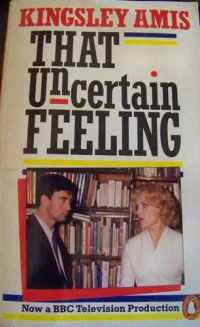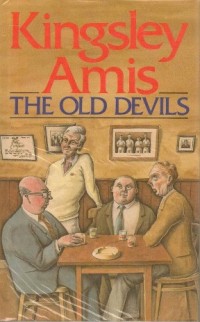The Alteration by Kingsley Amis
 Sunday, June 2, 2013 at 3:06PM
Sunday, June 2, 2013 at 3:06PM First published in Great Britain in 1976; republished with an introduction by William Gibson by NYRB Classics on May 7, 2013
Kingsley Amis was a science fiction fan, so it shouldn't be surprising that he tried his hand at a science fiction theme. The Alteration is an alternate history with the merest whiff of steampunk. It pays tribute to one of the finest alternate histories, Philip K. Dick's The Man in the High Castle, secretly admired by some of The Alteration's characters as a forbidden book about a forbidden book. Cleverly, Amis describes an alternate version of Dick's novel, a device that acquaints the reader with the alternate world that Amis imagines, in which the Vatican controls all of Christendom (except for the small, relatively powerless nation of New England), science has been suppressed, and electricity is regarded as sinful.
In 1976, the highlight of a Requiem Mass for a recently deceased King is the beautiful voice of ten-year-old Hubert Anvil, a prodigy both as a singer and as a composer. The occasion brings to England the director of the Sistine Choir and the leading singer in the secular opero, both of whom are eunuchs, as well as Cornelius van den Haag, the Ambassador from New England. They debate Hubert's future: he can be either a great soprano or a great composer, but history has shown the impossibility of succeeding at both. If his calling is to remain a soprano, of course, he will need to visit a surgeon before he reaches puberty. The influential Italians believe that is the course Hubert's life must take.
Before Hubert can be altered, the church needs the permission of Hubert's father, Tobias, and of his confessor, Father Lyall, who voices reservations about the procedure. The opinion of Hubert's mother, Margaret, is irrelevant to everyone except Father Lyall, who has a sinful desire for Tobias' wife. Hubert's own opinion is equally irrelevant, and he probably would not have one but for his curiosity about sex. On the other hand, it's hard to say no to the Pope. When Hubert eventually makes his decision (although, technically, it is not his to make), intrigue ensues. Fate (which some will see as divine intervention) also seems to play an ironic role, but sometimes fate is guided by the hand of man.
And so, as fans of Kingsley Amis would expect, we have a book full of adulterers, hypocrites, sycophants, scoundrels, back-stabbers, manipulators, worriers, and the merely confused. Although filled with the wry humor that typifies a Kingsley Amis novel, The Alteration also explores philosophical issues. Does foregoing the possibility of physical love truly serve God, or does it serve only the earthbound interests of the church? Why is the suppression of pleasure so often the mission of religion? Does the celibacy of the priesthood make it impossible for the church hierarchy to understand the importance of family and the desire to procreate? When praying for God's protection, is it wrong to pray for protection from the church?
While The Alteration is a book of large themes -- the relationship between church and state, the conflict between freedom and duty, the inherent right to defy corrupt authority -- it succeeds on a more intimate level because Hubert, in contrast to the members of the church hierarchy, is such an innocent, appealing figure. In addition, the novel works because the alternate world in which Hubert lives is artfully constructed. It is a dystopian world, but one that is vastly different from the worlds imagined in most dystopian literature. The ruthless and unyielding exercise of theocratic power in a western world dominated by a single religion is every bit as frightening as the totalitarian dictatorship of Nineteen Eighty-Four. Despite the church's pretensions to the contrary, it is not a world that is kind to the innocent.
Amis' prose is (as always) both fluid and precise. His ability to write about serious matters with a light touch is remarkable. Still, this is not light reading. Some passages are dense. The novel therefore requires the reader's effort, but the effort is well-rewarded.
RECOMMENDED


